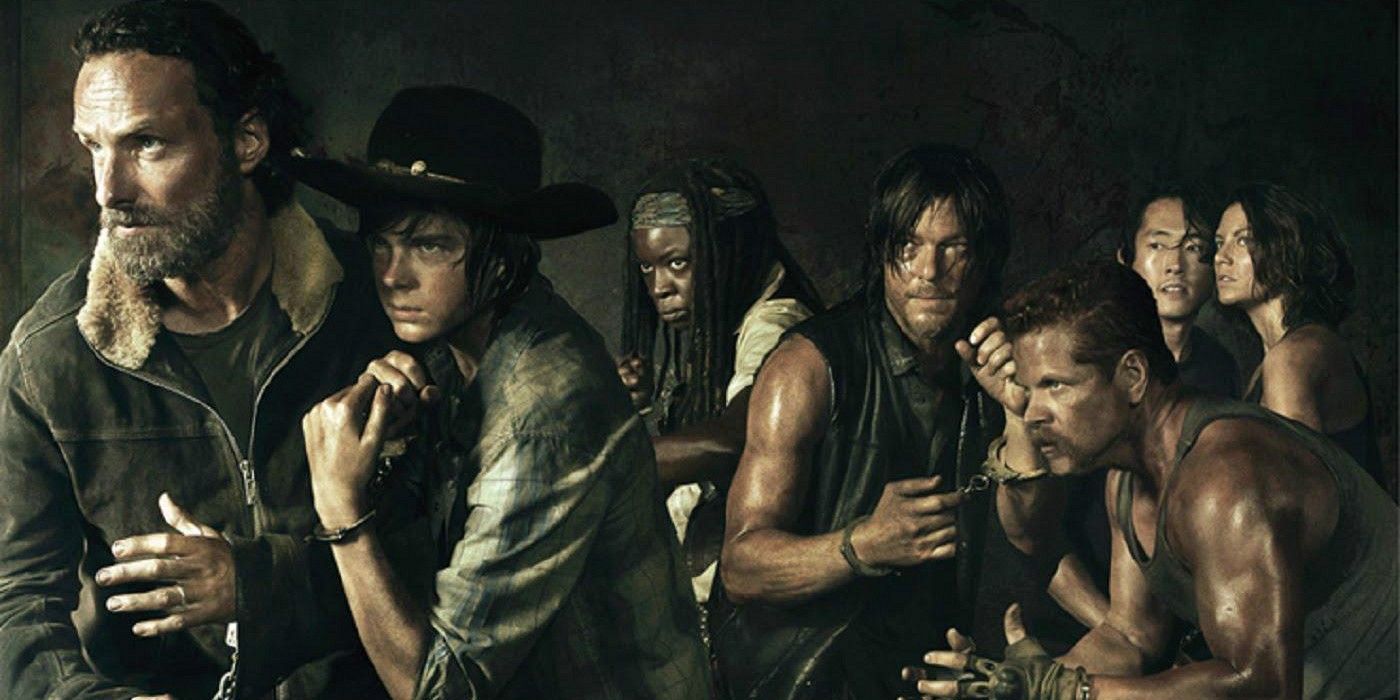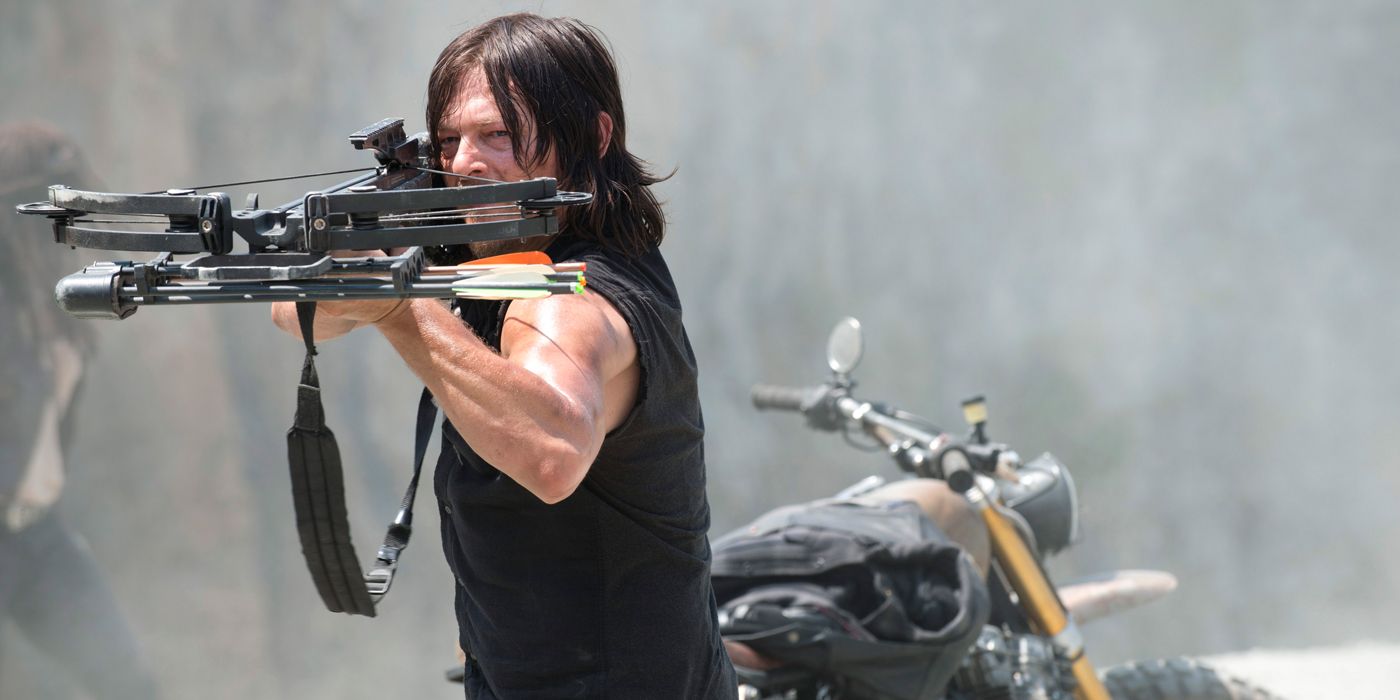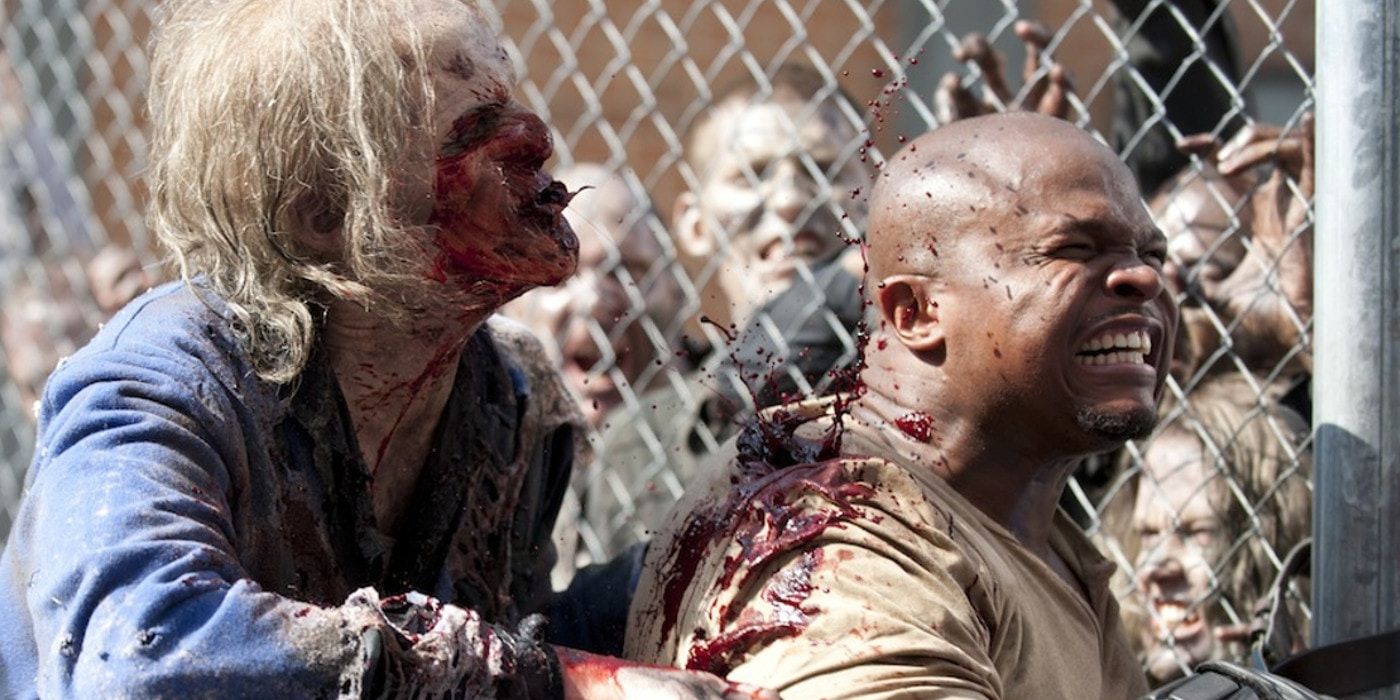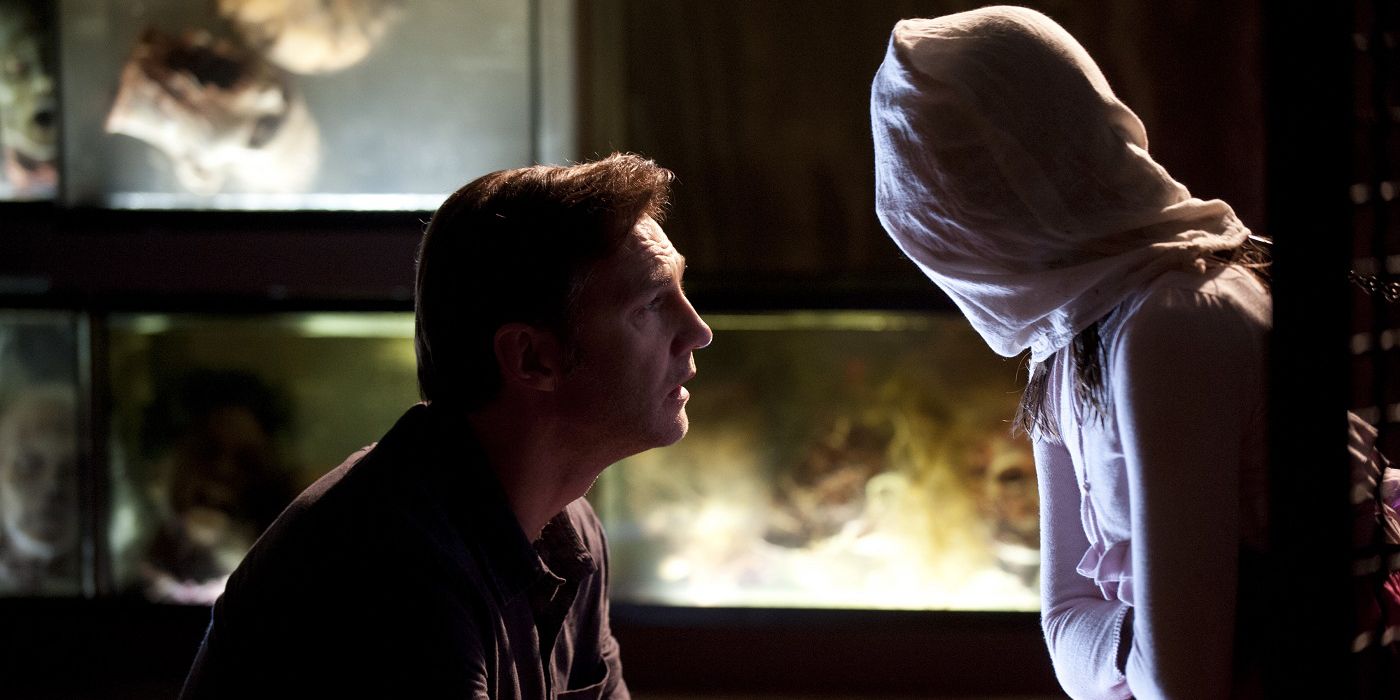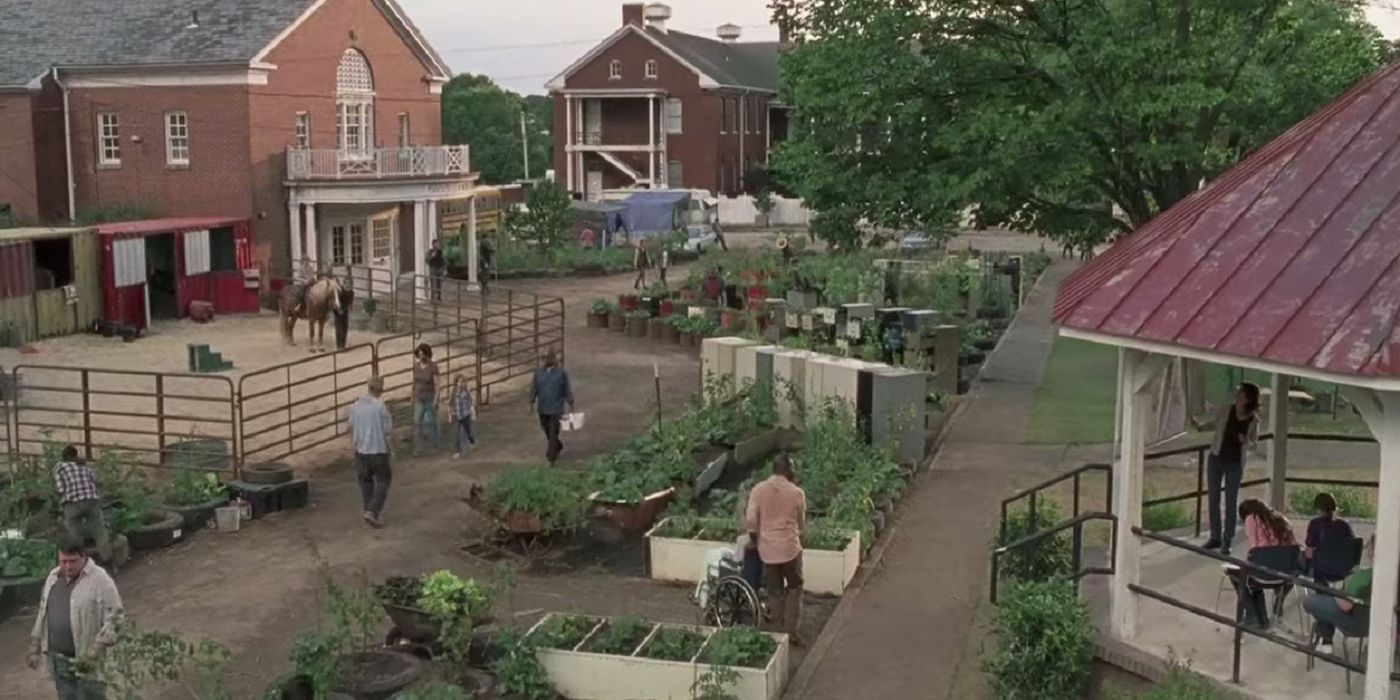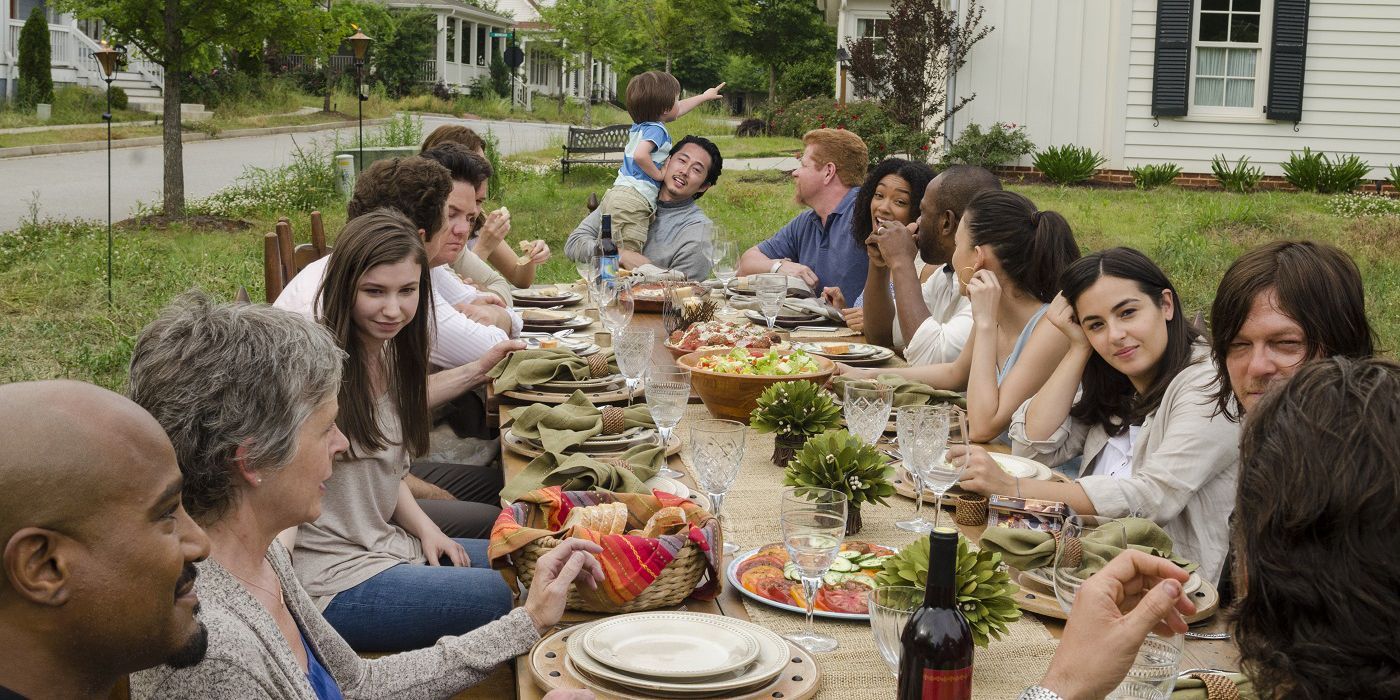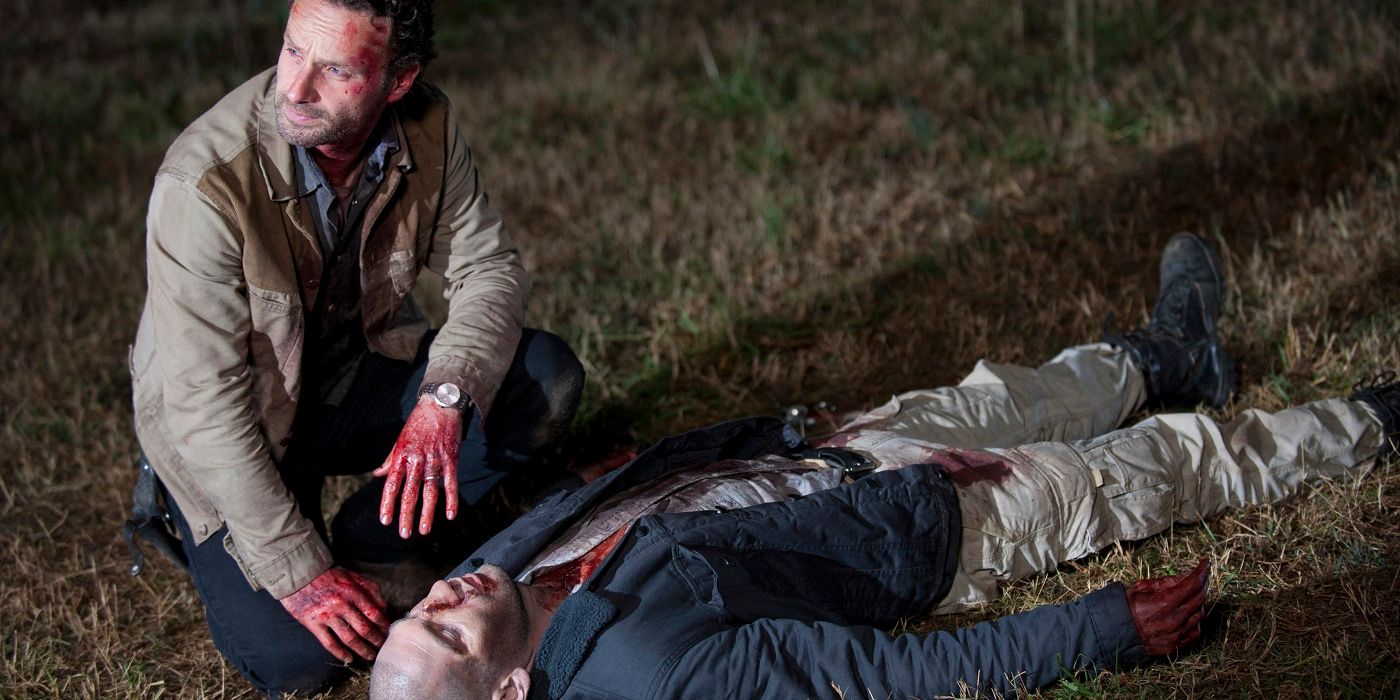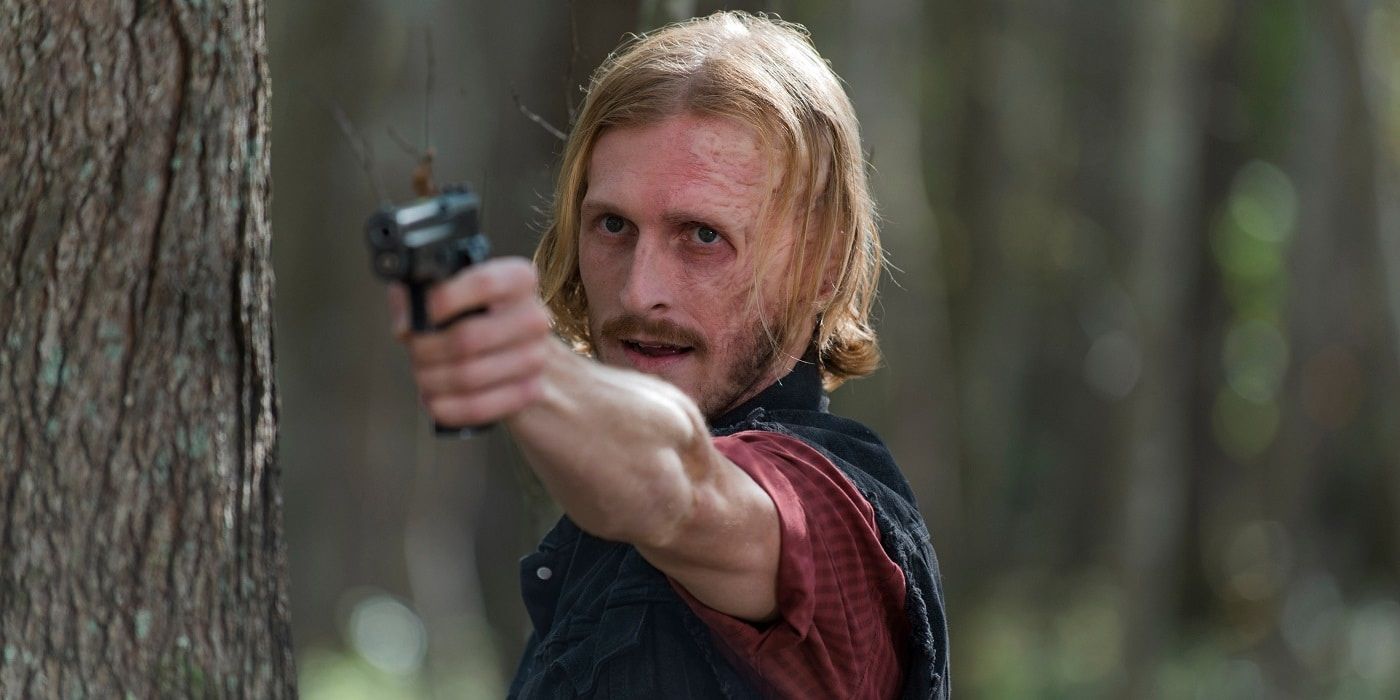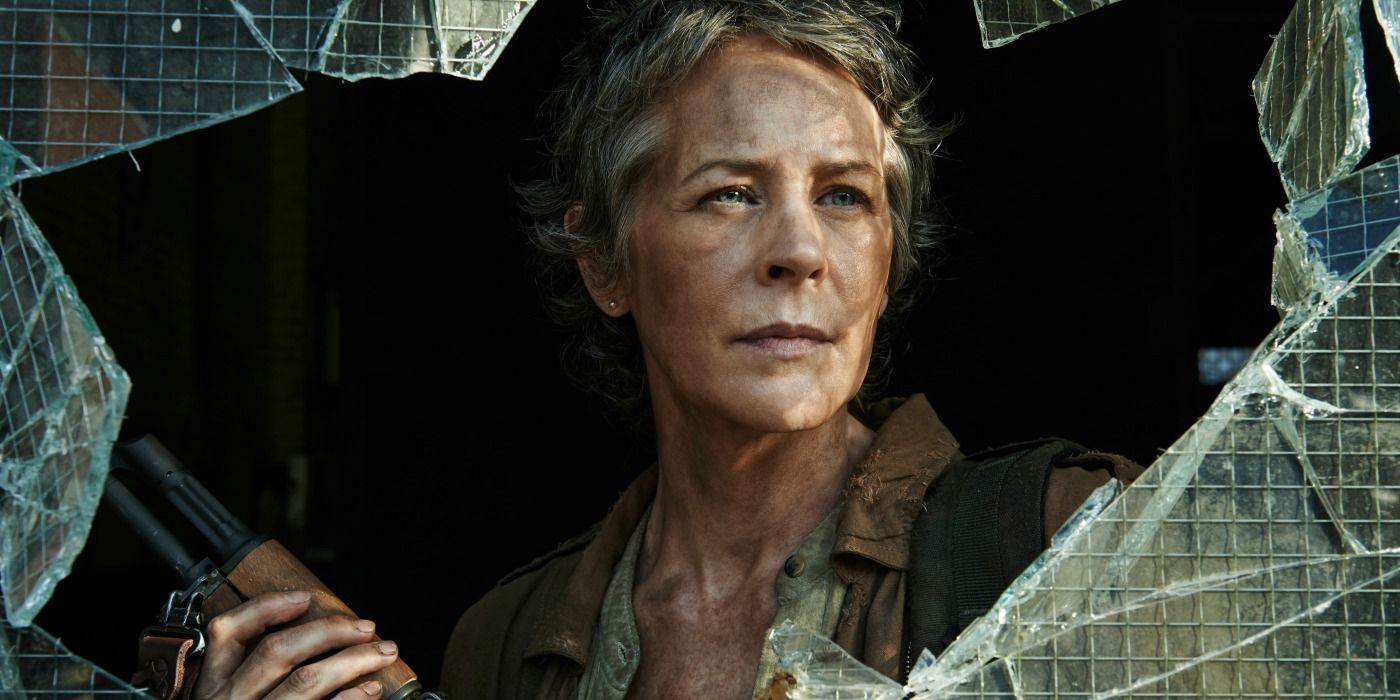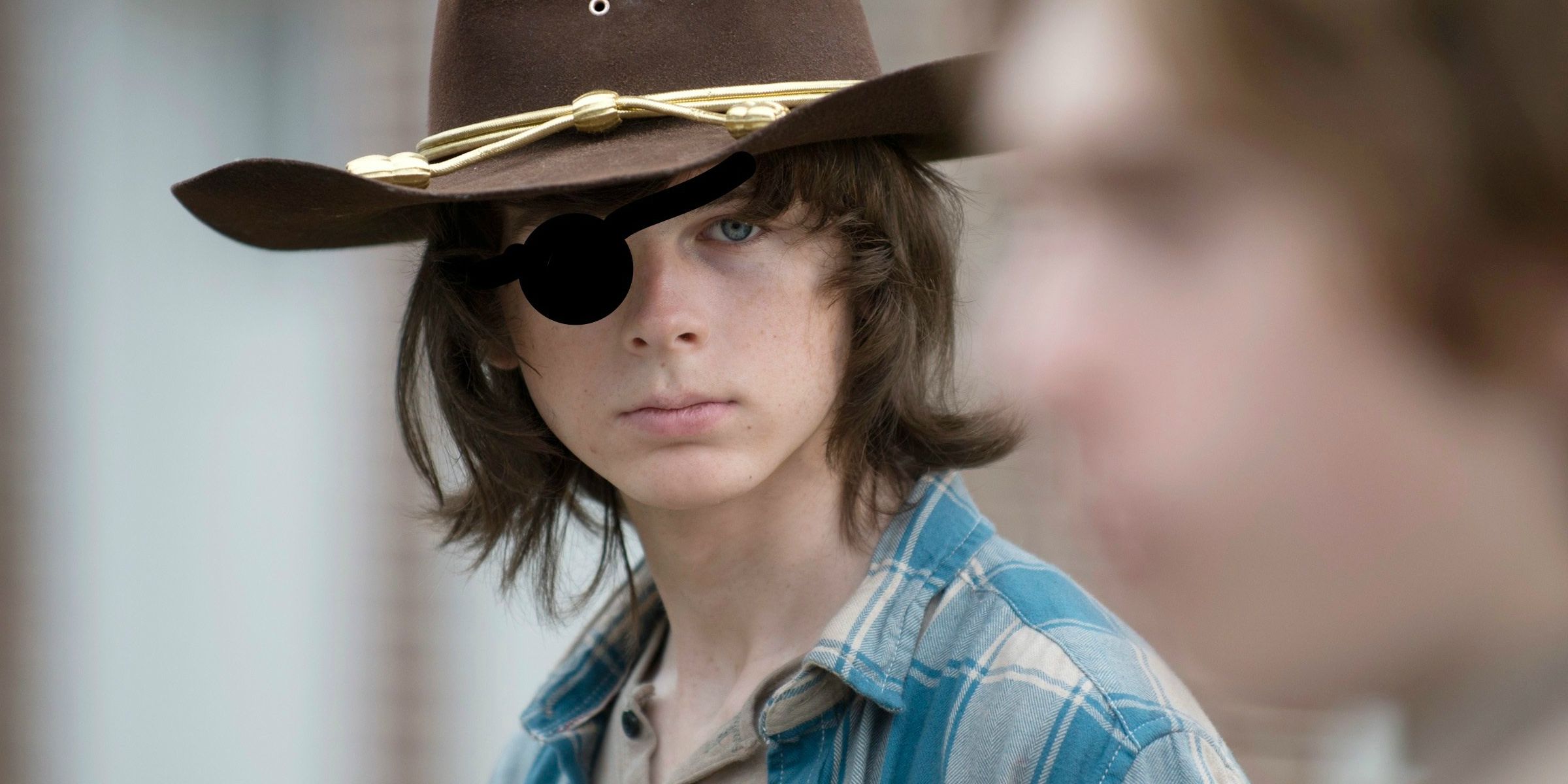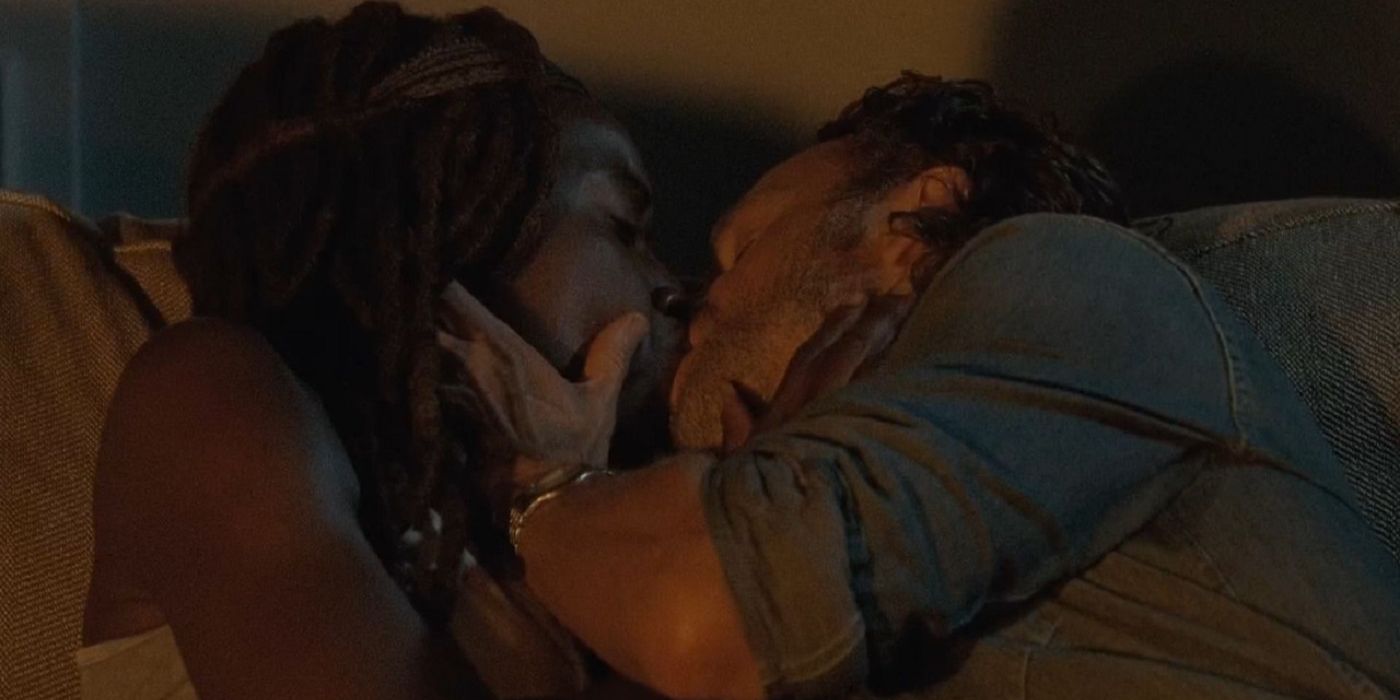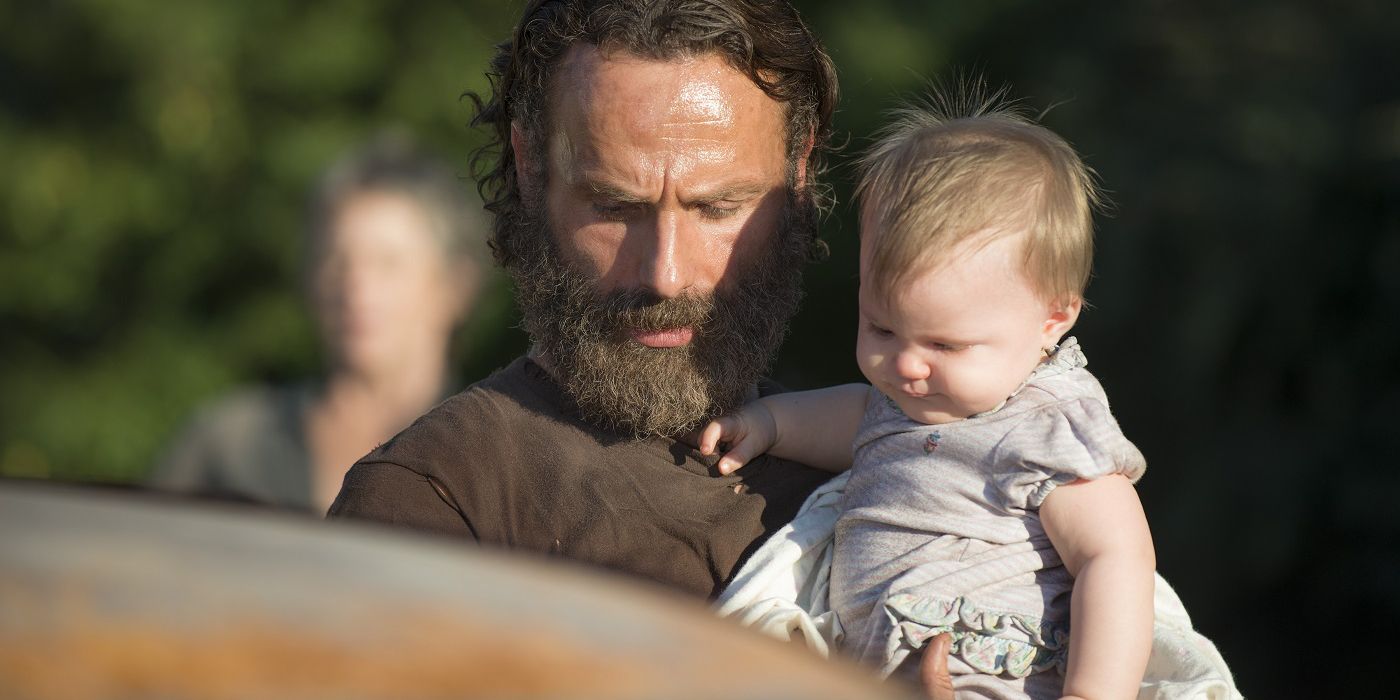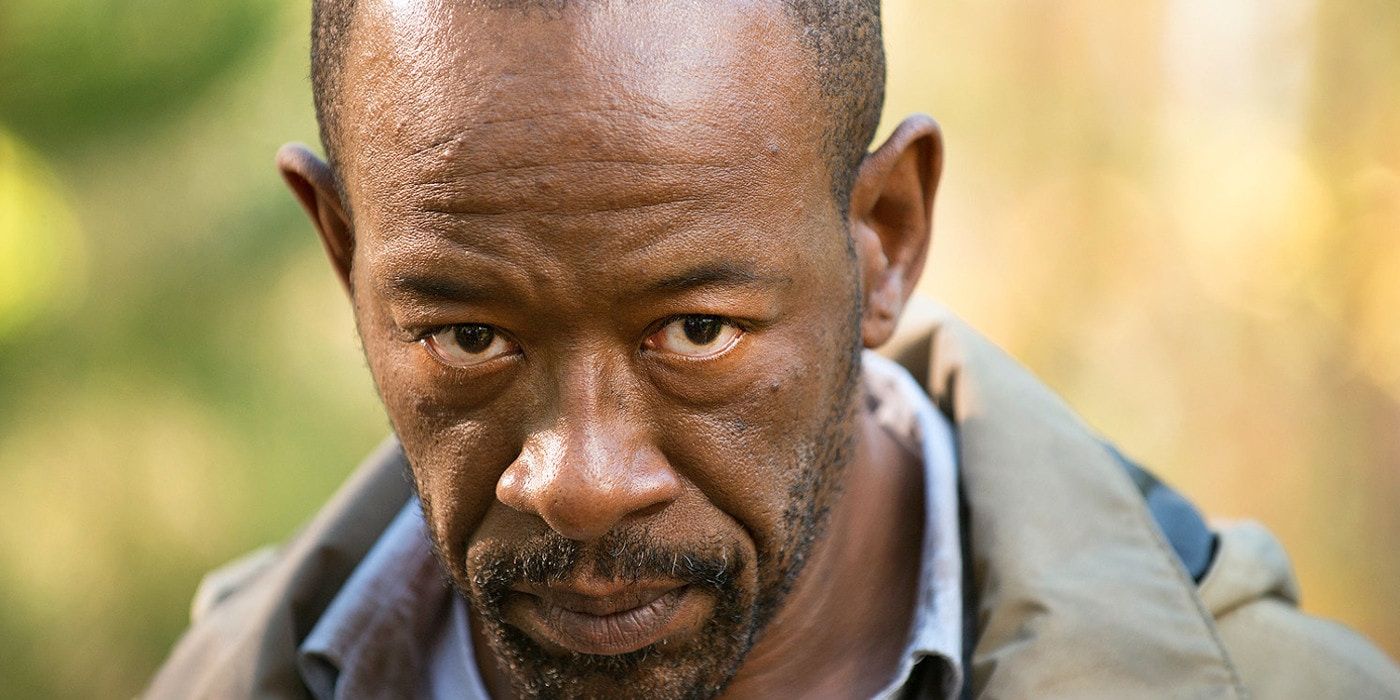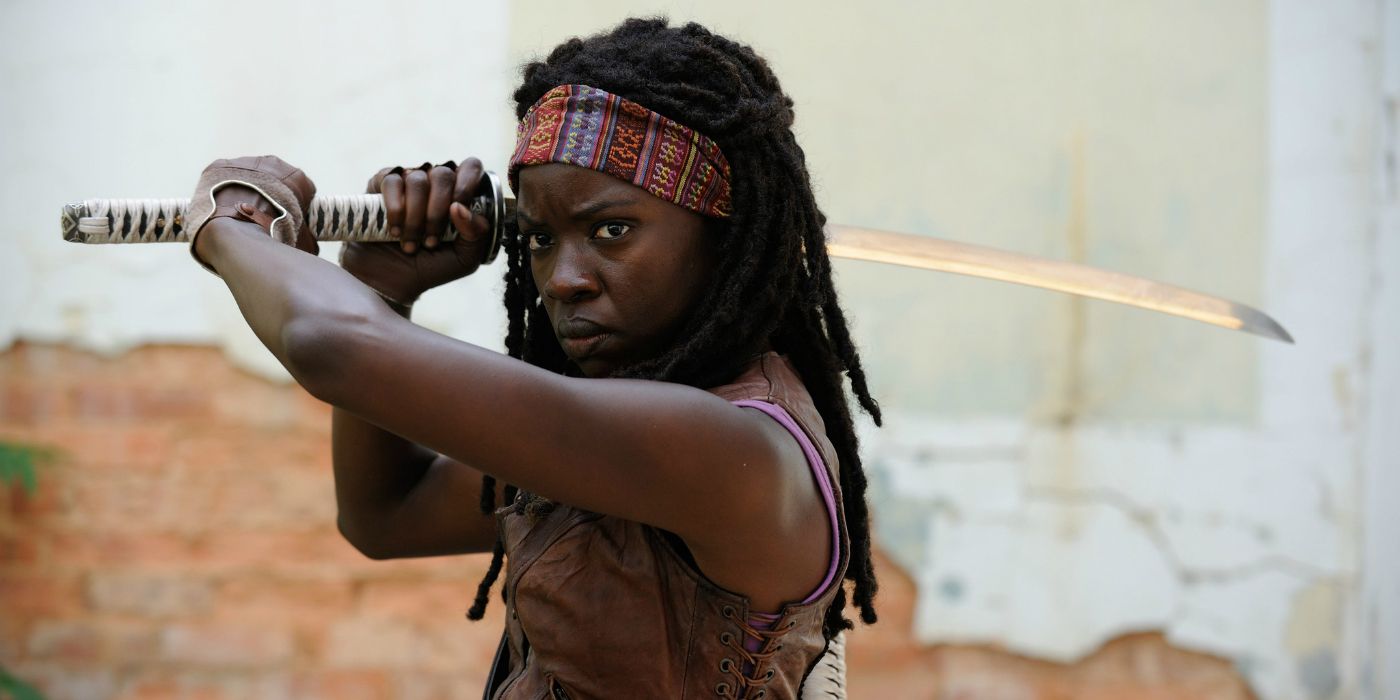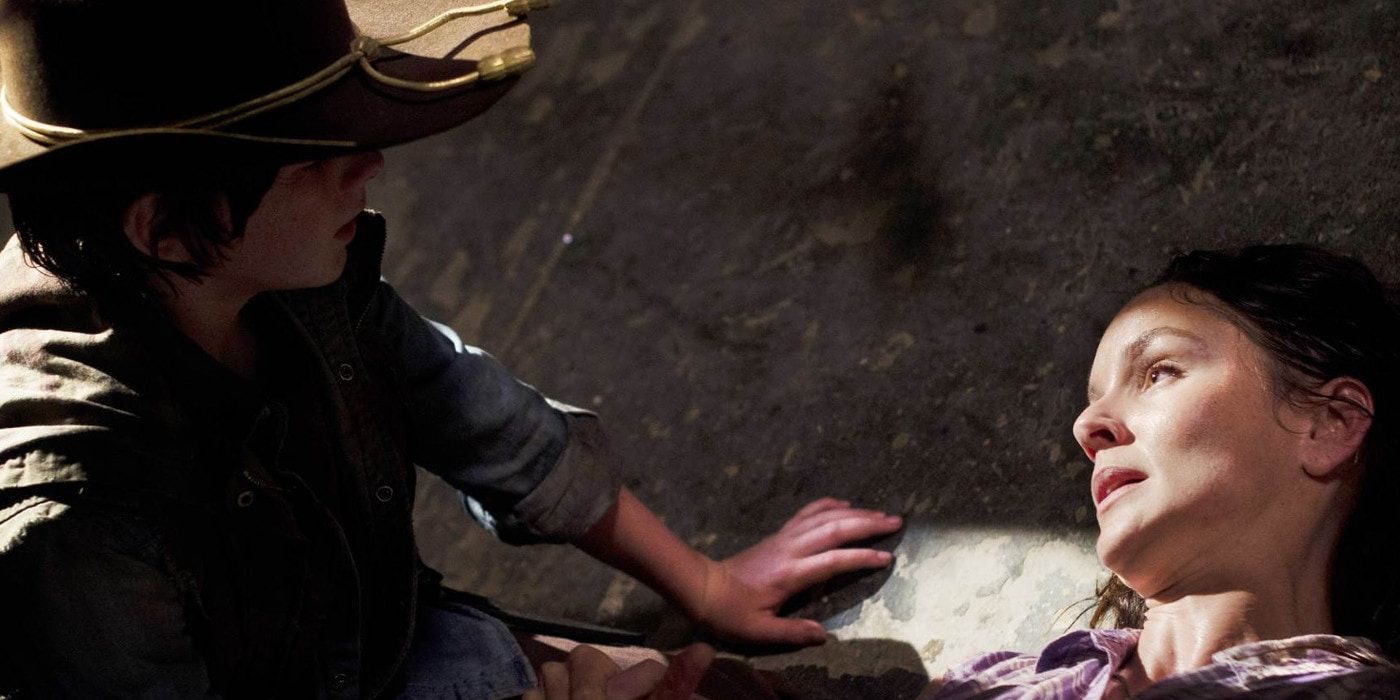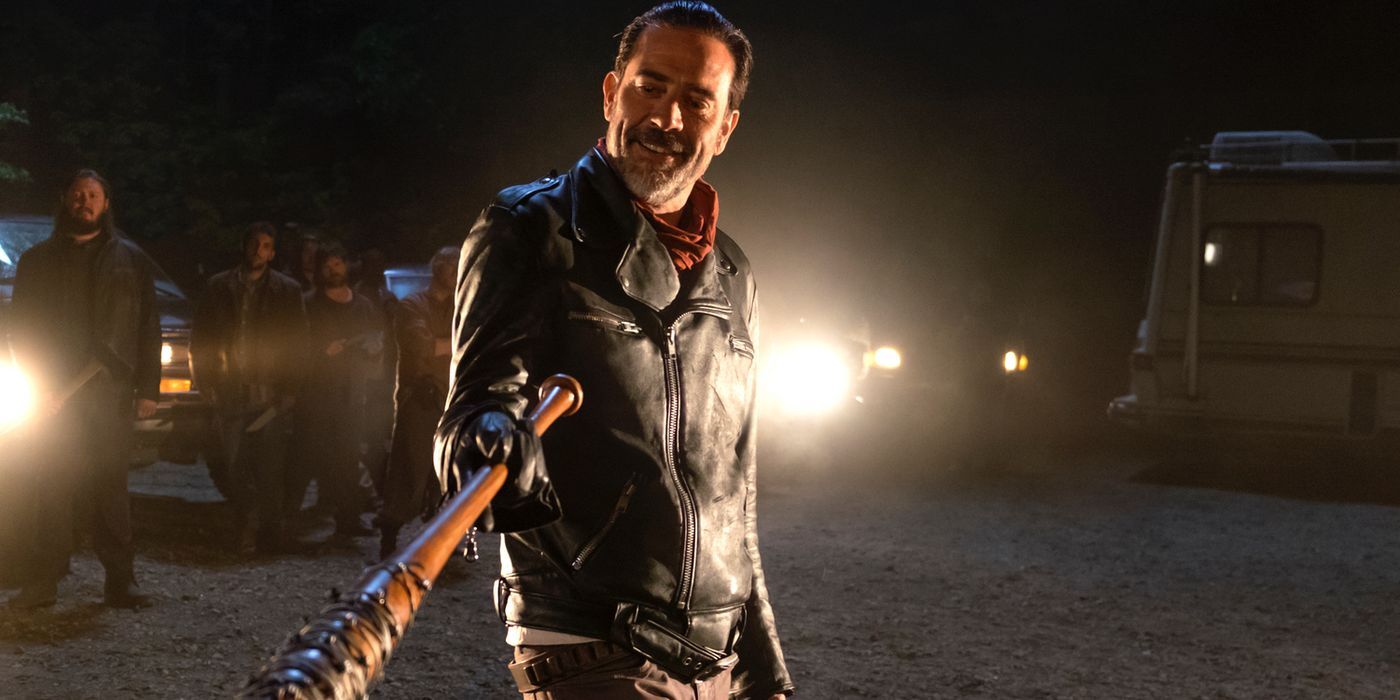SPOILER WARNING: Major spoilers ahead for The Walking Dead TV show and comic.
The debate of whether a comic book movie or television adaptation is better than the source material is one that consistently rages on among the fans. Many discussions are quite passionate and come from a good place, but more than a few end in unsettling and overly-heated arguments.
RELATED: "The Walking Dead": 10 Most Important Deaths
That said, when it comes to certain properties such as "The Crow," "Kick-Ass," "Kingsman: The Secret Service," and especially "The Walking Dead," a fair appraisal can be made that these showrunners and producers took their time to thoroughly develop stories which resonate just as much, if not more-so than the comics. Regarding the latter, comic creator, Robert Kirkman (also executive producer on the show), and AMC have made this formula work over seven seasons and counting, resulting in one of the biggest primetime draws for Sunday-night television. We've decided to assess why "The Walking Dead" television show tops the Image Comics book.
15 Daryl The Badass
"If Daryl Dies, We Riot" is usually the online response from fans if the archer's television stint is hinted to be coming to an end. As one of the show's original creations, Norman Reedus' character emerged as a remarkably popular figure since its debut. This can be attributed to his dogged nature, his ability with his crossbow and more so, because of a selfless attitude that paints him as a leader, despite his resistance to accepting the role. He evolved into one of Rick's most trusted lieutenants, which makes his position this season under Negan all the more painful to watch.
From the time he stood up against the tyranny of his brother Merle, which helped fuel the uprising against the Governor, people realized he was more hero than just a redneck anti-hero. His care for Carol and baby Judith also moulded him into a very endearing character, quiet in his sentimentality. It's tough to see him reduced to such a shell now as a prisoner of war, beaten into apparent submission at the hands of the Saviors,. Over the years, watching him on his bike covering Rick's posse has been a delightful treat and one that the writers know is not easily expendable.
14 The Live-Action Gore
The controversial gore factor of "The Walking Dead" amplifies how unforgiving the zombified world has become for humanity. The show hasn't shied away from explicitly graphic and bloody violence, which help paint the brutal nature of post-apocalyptic hopelessness. This was recently seen with Glenn's comic-faithful death, as well as with Abraham: both by the merciless Negan. The comic was very descriptive with Glenn in particular, as his head got bashed in with the barb-wired baseball bat nicknamed "Lucille," but as cruel as that was in black and white panels, every crimson drop and squished swing on the television made you cringe in a way the comic never could.
The show loves spilling blood when it comes to key players. Hershel was beheaded, Carl was shot in the eye during an evacuation of Alexandria. At other times, despots got their comeuppance, like when Michonne stabbed the Governor's eye out and also, when his comrade, Lilly, betrayed and shot the villain. When all's said and done, the bullets through brains, the dismembering, the guts, the zombie meals and the amputations result in something much more emotional, telling and real.
13 Viewers Can Actually Empathize With The Governor
Brian Blake devolved into a sadistic person in the comics when he became the Governor. He went from being meek to a full-fledged villain following the deaths of his brother, Phillip, and niece, Penny. This led him to a place where he collected heads in jars for amusement, pitted humans against zombies for recreation, sexually assaulted Michonne and as Woodbury's dictator, he cut off Rick's arm.
However, the show took a different approach where the writers built him up as a leader to connect with; similar to Rick in some aspects. Several factors shaped the Governor's humanity: his childhood abuse, his bad treatment at his job, his love for a wife (whose death in an accident wrecked him) and Penny, now his daughter instead, who eventually died. He also became a father figure to a young girl in his camp while keeping Penny chained as a walker to spend time with. Dedicating so much attention to these formative years really divulged just why he was in this Jekyll-and-Hyde state of mind. When Michonne killed his walker-daughter, he retaliated by later beheading Hershel rather than join their camp when the offer to do so was made, cementing him as one of show's iconic villains and ending all sympathy.
12 The Personality Of The Scenery
Just like a proper soundtrack, the right scenery and set design bring a lot of personality and character to the visual medium. "The Walking Dead" utilizes this cleverly and manages to capture the essence of a dystopian world so brilliantly, whether it's a temporary haven or people scouring through streets, dead cities or forests.
These notes were hit early on with Rick awaking from his coma and wandering through an abandoned Atlanta. The same stood for the team at the grim Centre for Disease Control. The prison offered a bleak home filled with pessimism, surrounded by the blight of zombies whereas Alexandria produced a suburban setting, albeit one of uneasy comfort that felt like the Grim Reaper was waiting. The Hilltop and Kingdom create a sense of potential and optimism while Negan's stronghold and the Governor's gladiator arena offered an atmosphere similar to hell. Lately, the ambiance of Oceanside (a seaside residence mentioned but not seen in the comics) emphasized the cynical world order. These settings speak volumes with their presence. It doesn't matter if the sheer magnitude is grand or if it's a location that's minimal, they all remind us that in "TWD," no matter where you are, nothing good can last forever.
11 Flashbacks, Dreams & Cameos Feel Real
On television, you can extend the aftermath of a scene or arc so that it holds much more weight than the books. That's because the television medium can offer certain scene dynamics that are simply more relatable and real to the viewer. This was seen where Rick was hallucinating and talking to Lori via a phone in the prison, clearly traumatized and struggling to cope with her death. Taken straight from the comic, these scenes dangled so much suspense and tension because you felt Rick's anguish when you heard his voice breaking, saw tears streaming and watched him contort in agony.
Another instance would be when the polarizing Shane made a cameo in season 3 following his death. This also applied to other characters such as Lori and the Governor when they popped up in haunting scenes post-death. All of these matter so much because, while they aren't living, breathing flesh, a ghost that's in our corporeal world being viewed can hit you harder than a drawing on a page. The texture in the flashbacks of Shane and Lori's affair, as well as Rick coming out his coma, struck the same emotional resonance. This tangible connection was punctuated by the dream sequence where Abraham lived as well as Glenn, holding his and Maggie's child.
10 Deaths Have Impact
"The Walking Dead" isn't a superhero comic: once you're done, you're dusted. Kirkman's book definitely has that expect the unexpected feel when it comes to loss of life and, as we've seen, everyone is game. This has applied to the show as well, with both main and supporting characters being killed over the course of its seven seasons. The visual medium allows scenes to have better pacing and more depth, making it so that you're connected more with the characters. Therefore, when they go, there's much more impact because they've become personal to you by the time their expiration date rolls around.
This is ironic given that Kirkman had some tongue-in-cheek comments for George R.R. Martin, who's known for killing off characters in "Game of Thrones." The difference with the AMC programme, however, is that you know that it's a real-world setting (aside from zombies also being real, anyway) at hand and not one of high fantasy. This helps "TWD" translate a subliminal warning label to you not to get too attached to anyone. When "TWD's" television series kills someone, you feel like they've run their course: a huge contrast to when GRRM killed a certain character who came back to life the very next season.
9 Villains Are More Than Just Swearing Thugs
It's easy for comics readers to misconstrue Kirkman's villains as nothing but overly-angry, foul-mouthed individuals. When it came to the Governor or Negan, the comic seemed to rely too much on swearing as a means of characterization. The latter's debut is a prime example of this, littered with profanity during his bat-swinging murders. This scene is even getting its own uncensored cut for home video release due to its complaints from comics fans over how much got changed.
The series, being on AMC and whatnot, doesn't have the same liberties as HBO to let loose in terms of language, but it doesn't need to because the characterization of villains like the Saviors are given enough backstory to show that while they do commit vile acts, most are driven by the end-times panic set in with almost everyone. The villains are fleshed out to the point that their actions speak for themselves and they are so well-written, we already know their inner-expressions because of how familiar we are with them. Most, if not all, of the villains' angry exposition is done via showing, not telling, with the F-bombs being silently understood.
8 The Lethal Carol
In the books, Carol's failed relationship with Tyreese, her mental instability, and her inability to withstand rejection led to her committing suicide, leaving her daughter, Sophia, with Rick's unit. Her mental issues have manifested differently in the show, as she lost faith in her religion and became a warrior, not hesitating to kill anyone or anything who threatens her people. A lot of this descent stemmed from Sophia's ill-fate but also from the gap that needed to be filled by someone who'd be willing to go that extra murderous mile for Team Rick.
In Alexandria, she threatened a young boy named Sam into keeping silent about the fact that she was stealing weapons. Her role as a lethal leader, though, will best be remembered for her exile from Rick's group after killing two zombie-infected stragglers, for killing the psychotic youngster, Lizzie, and for wiping out the cannibalistic Terminus. The producers definitely made the right call by not killing her off.
7 Carl's Evolution
It's one thing to see time-jumps on panel, especially with a youngster enduring constant tragedy like Carl Grimes, but seeing the actor (Chandler Riggs) age over the course of seven years, allows you to watch his persona progress and mature on-screen, physically and mentally. With speculation rife over Riggs' future, it would be interesting to see where his character ends up: charting a darker course, a more altruistic path, or maybe one that's somewhere in-between, akin to his father every season.
After losing his mother and barely making it out of the prison fiasco with his father and sister, Carl has shown moments of warmth, towards Enid especially, but for the most, his interactions have been on the defensive and cynical end of the spectrum. Losing his eye hasn't helped to pacify Carl, who went from being a bright-eyed doe under his father's care to someone intent on ensuring the protection of as many people close to him as he can. In doing so, he's found himself in the trenches, engulfed by trigger-happy moments of retribution, which could culminate in a potential showdown with Negan later this season due to Carl's lust for revenge being stoked after watching his friends' battering.
6 Romances Feel Organic
Some of the romances in the comic are a bit rushed and at times far-fetched. Carol's infatuation with Tyreese was one, further complicated by the arrival of Michonne, resulting in a love triangle that just seemed placed for controversy's sake. Even when Carol solicited polygamy with the Grimes' afterwards, it was a head-scratcher because sure, the rules went out the window in the zombie apocalypse, but the vibe and overall lack of civility felt off in a time where everyone was trying to cultivate a family.
Aside from the comic-faithful first tryst between Glenn and Maggie, the other relationships are vastly different because the show gave the characters enough time to suss each other out. Shane and Lori's indiscretions went from lacking in the comic to an affair that the audience understood due to its substance and desperation. Rick and Michonne have been through a lot, so you can understand why they're gravitating to each other now, and you can also sense the chemistry between Carol and Ezekiel, whereas Ezekiel's romance with Michonne felt haphazard in the book. The Abraham-Rosita-Sasha triangle has also been properly constructed where viewers feel the connections made and lost with each character, witnessing any growth and affection arising.
5 Judith's Survival
In the books, when the Governor attacked the prison, Lori fled with baby Judith, only to be mortally blown away by a gunshot. Her fall crushed and killed the baby in the process. In the show, Lori died via C-section, with Carl's ensuing bullet ensuring she wouldn't reanimate as a walker. Maggie delivered Judith in the prison and for the next few years, the team would go on the run, scavenging for baby products along the way while trying to thwart off ravenous attacks from humans and zombies. When Judith went missing amid the prison bloodshed, fans feared the worst, but thankfully, Carol and Tyreese were looking after her.
Reuniting her with Rick and Carl was a profound highlight of the series as it really showed how much her light mattered in a world that's become so dark. Every smile, coo and laugh adds color to "TWD" and also, it showed that the series wasn't as morbid and heartless as people touted. Her survival brought a new dimension to Rick's entourage and filled them with moments of optimism. She also continues to be the true north to Rick's moral compass, despite him finally admitting that he's not her real father.
4 The Heroic Morgan
Morgan was quite a complicated character in the book, helping Rick and Carl early in their journey before spiralling downward mentally after losing his family. He eventually caught back up to Rick and was part of their Alexandria outfit, even having a relationship with Michonne. It ended on a dour note after he was bitten by a walker and she had to put him down. In the show, he follows a similar route, but once in Alexandria, he puts his family grief behind and becomes one of Rick's most trusted friends. Ironic, given that despite being versed in the Akido fighting style, Morgan does not want to kill.
Even if its against villainous groups like the Wolves or Saviors, he refuses to commit murder, which also led to a confrontation with Carol over her bloodthirsty ideologies against their enemies. Despite this conflict with Carol, after she flees the group, he maintains his essence as a paragon of virtue, going after her and eventually saving her life by killing a Savior. He's seen as the embodiment of the collective's conscience, which should make his and Carol's stint at the Kingdom with Ezekiel and company all the more intriguing.
3 The Characters Have More Depth
Television and cinema enable characters to say more and, if done right, can take one panel or page and make it last minutes. The idiosyncrasies of cast members compound this since you can see them in motion: nervous or angry facial twitching, flinching, bodies writhing in pain, throats gulping in fear or thirst. When actors do these things on-screen, it provides more depth to their character portrayal than a single comic book panel can provide. Adding sound to motion further creates new layers and increases the breadth of the character. Their vocal tones, how they laugh, cry, smile and grunt help define them as well.
It's not just how they're portrayed, but also how much air-time they get. Kirkman used this extra room on television to also shape Carol into a reluctant, flawed leader. The team gave a lot of development to Shane, whose affair with Lori felt more understandable, to Hershel, to Michonne, and also to the ill-destined Dale, thus proving how television can dedicate episodes to characters and have them communicate with us very differently and more efficiently than the comic can.
2 Switching Up Deaths
"The Walking Dead" keeps you guessing if people are going to die the same way they did in the comic. Abraham died via Dwight's crossbow in the book, but was bludgeoned by Negan on television. Lori's death occurred differently as mentioned earlier, as did Tyreese, who was beheaded by the Governor in the comic but killed by walkers on the show. Ironically, Hershel, shot by the Governor in the comic, was the one we saw decapitated on television. This bait-and-switch allows the writers to get creative with deaths and ensure that predictability never sets in.
"TWD's" dance of death capitalizes on the idea that anyone can go at any time. This creates new paths for viewers to follow with the story getting prolonged to build anticipation elsewhere. Now, fans aren't just focused on a certain character they were looking to see killed a certain way, but rather they're wondering if the way that character died will occur to someone else instead.
1 It Learns From The Comic's Mistakes
The show continues to hit feverish heights with season 8 already renewed. Despite Frank Darabont and Glen Mazzara departing early on as executive producers, the show kept momentum with Kirkman and the likes of Gale Ann Hurd and Greg Nicotero. A key advantage they've had is that it gets to learn from the comics' mistakes and see what hit and what didn't. This reduces the chances of missing the mark via trial-and-error because by then, Kirkman would have already tested the waters with the book.
Any mistakes made can be adjusted to better the probability of success for the small screen. He'd also know what was well-received, which in turn can be even further improved upon when transferring it to television. The two mediums need not be identical all the time and Kirkman has already indicated the endings for both won't be the same, which tells us just how this freedom of adaptability gives the show infinite possibilities when compared to the source material.
Thoughts on our choices? Be sure to sound off in the comments!

